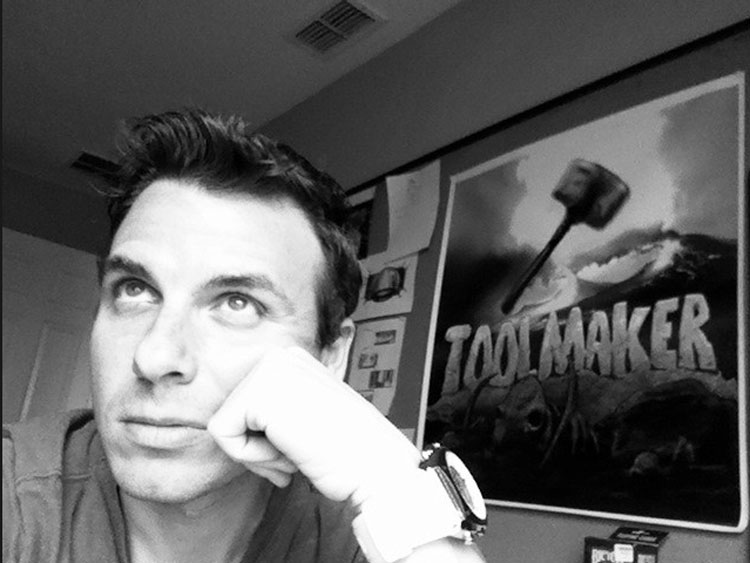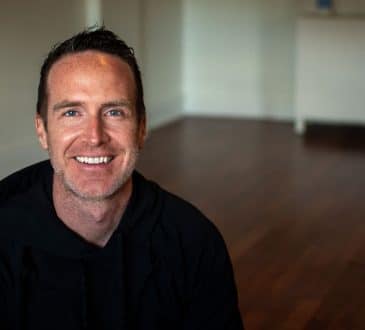Chris Conidis: How Does Storytelling Shape Success?

Chris Conidis is a storyteller, creator, and performer with over 20 years of experience. He’s passionate about sharing ideas through writing, filmmaking, and comedy. Chris got his start at Universal Studios and Walt Disney World, creating experiences that brought stories to life for millions of guests. This hands-on work shaped his love for crafting memorable moments.
He went on to found Elios Entertainment, where he produced animations, short films, and creative projects. His work spans genres like sci-fi, horror, and comedy, always with a sharp eye for detail and humor. Chris believes great stories connect people, and he uses every tool he can to make that happen.
As an improv performer, Chris has entertained audiences with quick wit and clever humor. His writing includes books like Toolmaker and The Magician’s Code, which blend big ideas with relatable storytelling. He’s also led workshops on storytelling and creativity, helping others find their voice and share their stories.
Chris is proud of the recognition his work has earned, including the Indie Creator Excellence Award. But for him, success isn’t about awards—it’s about creating something that sticks with people.
Outside of work, Chris enjoys running, animation, and learning about science and history. He’s always curious and looking for new ways to challenge himself. Chris approaches every project with humility and a focus on improving, knowing there’s always more to learn and room to grow.
Why is storytelling important?
Storytelling is how we connect with people. Facts and figures are important, but they don’t inspire action—stories do. A good story makes people feel something, and when they feel something, they’re more likely to remember your message and follow your vision. For leaders, storytelling is a way to build trust, communicate goals, and rally people around a common purpose. Also as a storyteller,I think of it this way: as writers, performers, and creators, we share a surprising connection with professions like doctors or psychologists.
While doctors cure the body, we cure the mind. In a way, we’re working in the same field as psychologists or psychiatrists—engaging with the subconscious and creating something that resonates emotionally or mentally. When we’re on good terms with our subconscious, we can dig out of ourselves something of value. Sometimes, our work becomes cathartic, helping people process emotions they didn’t realize they needed to address.
For many creative people, though, there’s often a deep sense of inferiority or insecurity that we battle. This might even be why we’re drawn to creative fields like writing, painting, or acting—it’s a way to work through those feelings. Artists tend to mature late, but with that maturity comes a sharper understanding of our craft and its impact. We can create tensions in stories that can be released. LIke a hairball that needs to be coughed up.
How can someone become a better storyteller?
Start by knowing your audience. What do they care about? What challenges are they facing? Tailor your story to resonate with their experiences. Next, keep it simple. Great stories have a clear beginning, middle, and end. Finally, don’t just tell—show. Use vivid details and examples to make your story come alive. Practice helps, too. The more you tell stories, the better you’ll get at finding your voice and refining your delivery.
What’s the key to engaging an audience when speaking?
Authenticity. People can tell when you’re being genuine versus when you’re just going through the motions. Speak with passion, but also be conversational—like you’re talking to a friend. Humor helps break the ice, but don’t force it. And remember, engagement isn’t just about what you say; it’s also about how you listen and respond to the energy in the room.
What role does storytelling play in motivating teams?
It’s huge. A story can turn an abstract goal into something personal and meaningful. For example, instead of saying, “We need to hit this target,” share a story about why the goal matters—maybe a customer who benefits or a challenge the team overcame before. It reminds people why their work is important and gives them a sense of purpose.
Any advice for someone nervous about public speaking?
First, remember that nobody expects perfection. People want you to succeed, so don’t be afraid to show a little vulnerability—it makes you relatable. Second, prepare, but don’t over-rehearse. Know your key points, but leave room for spontaneity. Lastly, focus on your message, not yourself. When you shift the focus to the value you’re providing, the nerves tend to fade. Public speaking is just another form of storytelling, and every leader has stories worth sharing.
How can storytelling help people handle challenges or crises?
During a crisis, people look to leaders for clarity and direction. Storytelling helps frame the situation in a way that reassures and inspires action. Share the “why” behind decisions and focus on the bigger picture. For example, instead of just addressing the challenge, tell a story about resilience—how your team has overcome obstacles before or how this moment fits into the long-term mission. It helps people stay grounded and motivated, even in tough times.
What makes a story memorable?
The best stories are personal and relatable. Share something from your own experience—an obstacle you faced, a lesson you learned, or a moment of growth. Memorable stories also tap into universal emotions, like hope, perseverance, or gratitude. And don’t forget the power of a clear message. A great story should leave people with something they can act on or reflect on long after it’s told.
How do you balance vulnerability and authority in storytelling?
Vulnerability doesn’t weaken authority; it strengthens it when done right. Being open about your struggles or mistakes shows you’re human, and people connect with that. The key is to balance honesty with confidence. For example, if you share a failure, also share what you learned and how you grew from it. It’s about showing that even when things aren’t perfect, you’re still capable of leading with vision and strength.
Have you read?
World’s Most Powerful Passports.
Richest Countries In The World.
Poorest Countries In The World.
Happiest countries in the world.
World’s Highest (and Lowest) Life Expectancy.
Bring the best of the CEOWORLD magazine's global journalism to audiences in the United States and around the world. - Add CEOWORLD magazine to your Google News feed.
Follow CEOWORLD magazine headlines on: Google News, LinkedIn, Twitter, and Facebook.
Copyright 2025 The CEOWORLD magazine. All rights reserved. This material (and any extract from it) must not be copied, redistributed or placed on any website, without CEOWORLD magazine' prior written consent. For media queries, please contact: info@ceoworld.biz








